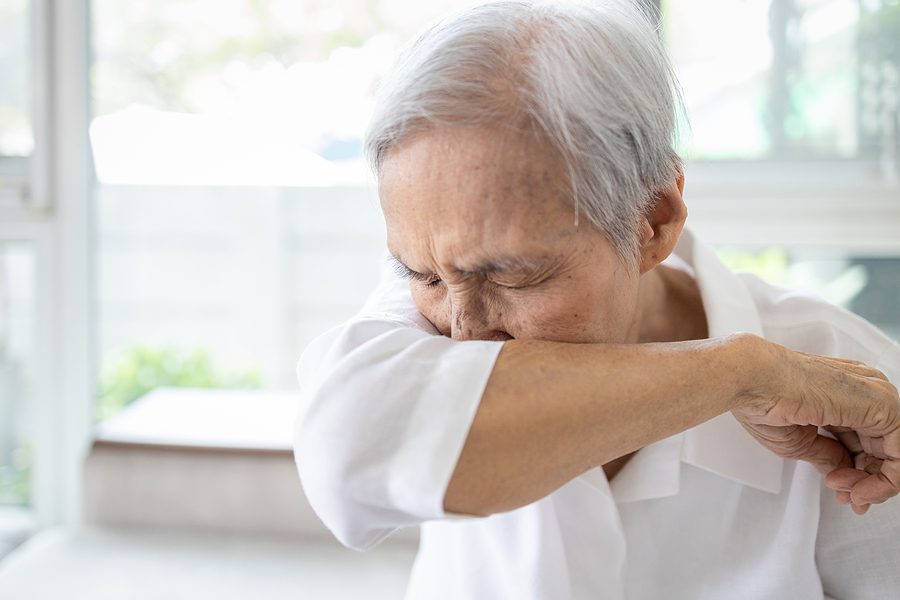Infectious diseases can be incredibly dangerous for elderly individuals. As you age, your immune system becomes less potent. This limits your ability to fight off foreign bodies like viruses and bacteria. In fact, about one-third of all deaths in Americans 65 and older are caused by infectious diseases, according to the American Academy of Family Physicians. This article will discuss some of the more common infections that older adults suffer from, and what you can do to help your loved one fight back.
Influenza
The flu is a common respiratory infection that can spread quickly. People generally contract it through coughs and sneezes from someone carrying the infection. Influenza kills almost 12,000 seniors each year in the US. Different strains of influenza may present different severities and minor symptom changes. Common symptoms include coughing, sneezing, fever, and fatigue. Yearly vaccines for the flu can minimize the risk of infection and may reduce the severity of symptoms.
Bacterial Pneumonia
Pneumonia can be caused by either a virus or bacteria. Bacterial pneumonia, however, is a leading cause of hospitalization in senior citizens. Unfortunately, symptoms of bacterial pneumonia may not always be present until the infection worsens. Bacterial pneumonia can cause the air sacs in the lungs to fill with fluid and become inflamed. This can create difficulty breathing. Seniors may also experience dizziness, confusion, weakness, and a loss of appetite. The pneumonia vaccine can help prevent bacterial pneumococcal disease.
Urinary Tract Infections
Urinary Tract Infections (UTIs) occur when bacteria travel up the urinary tract and into the bladder. In younger adults, this can present itself as pain or burning while using the bathroom, but the symptoms are often different in seniors. Seniors with a UTI may experience sudden incontinence, severe weight loss, loss of appetite, and confusion. If left untreated, a UTI can lead to hospitalization. When caught early, antibiotics can be a quick solution. Preventative measures include maintaining good personal hygiene and drinking plenty of fluids. Proper hydration is important to keep flushing out your bladder.
Skin Infections
Skin infections can occur in a number of ways. First, small cuts and scrapes can become infected. Additionally, moisture or constant contact, such as with bedsores, can lead to infections. Because the immune system in older adults isn’t as powerful, these infections can become harder to fight off. They can show up as rashes, marks, ulcers, and more. Severe infections can cause pain and illness that can lead to hospitalization. Prevent skin infections by properly treating wounds, regular hand washing, and good personal hygiene. After bathing, remind your elderly loved one to carefully dry the skin, especially in nooks and crannies. Leaving moisture on the skin can create breeding grounds for bacteria. Help reduce or prevent bedsores by moving around regularly. If your loved one is bedridden, help them roll to their sides or move them occasionally.
Gastrointestinal Infections
While the gastrointestinal tract is home to a wide assortment of healthy bacteria, sometimes unhealthy bacteria can cause you to feel sick. Generally, these bacteria come from contaminated water or undercooked food. Additionally, an overabundance of antibiotics can kill off healthy bacteria, which allows the unhealthy ones to run rampant. Gastrointestinal infections can cause diarrhea, vomiting, stomach aches, and fevers. It is important to stay hydrated to minimize complications. You can limit your risk of infection by washing your hands before eating, after handling food ingredients, and after using the bathroom. Additionally, ensure that food is cooked thoroughly before consumption.
Home Health Aides and Preventing Infections
Your elderly loved one can reduce infection risks by having a caring and watchful eye on them throughout the day. Home Health Aides can help reduce the risks of infection through meal preparation, bathing assistance, and more. A caregiver can also help identify when your loved one is feeling under the weather.
Safe Harbor Healthcare Services does not provide medical, healthcare, or financial advice via articles. This material has been prepared for informational purposes only. It is not intended to provide, and should not be relied on for medical advice.
Safe Harbor Healthcare Services has been providing excellent home care on Staten Island since 1967. Our services help the elderly and disabled live safely and independently; while giving their families the peace of mind they need. For more information contact us by clicking here, or call (718)-979-6900.

